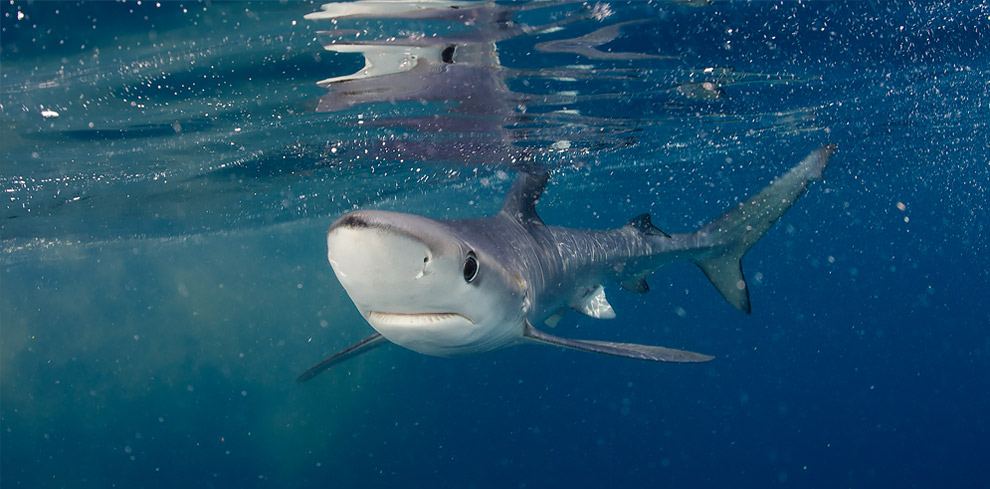Conservation at Work

Protecting New York’s Marine Wilderness
WCS is leading a broad coalition of partners to secure better protection for the New York seascape, including a proposal to the National Oceanic and Atmospheric Administration (NOAA) to designate the Hudson Canyon as a National Marine Sanctuary. The Hudson Canyon is the East Coast’s largest submarine canyon. Scientists consider it to be a biodiversity hotspot and vital habitat for diverse marine species including sharks, corals, and a number of endangered whales and sea turtles. The canyon also supports the local economy through fisheries and tourism such as birding and whale watching.
As Director of the New York Aquarium Jon Forrest Dohlin stated, the Hudson Canyon “is a fragile ocean ecosystem just offshore of one of the most densely populated urbanized areas in North America, one that is currently open to the possibility of oil, gas, and mineral exploration and extraction. Giving the Hudson Canyon sanctuary status will help marine life thrive for generations to come.” Our proposal submission to NOAA was the first of several steps in the nomination process and we have just learned that the canyon has officially been added to the list of sites being considered. You can help by signing the petition to protect the Hudson Canyon by making it a National Marine Sanctuary.
Monitoring Machu Picchu’s Bears
The historic sanctuary of Machu Picchu, once home to the Incan Empire, is now home to the Andean bear, a reclusive species currently listed as Vulnerable by the IUCN Red List. This video from the Andean Bear Conservation Alliance shows what it takes for WCS and partners to monitor and conserve these rare bears in such a unique landscape.
Paula Hayes Appointed EVP and Chief of Global Resources
We are pleased to announce the appointment of Paula Hayes as Executive Vice President and Chief of Global Resources at WCS. Paula comes to WCS from the Environmental Defense Fund (EDF) where she started as Director of Development, and most recently, served as Senior Vice President of Global Strategy. She proved to be a transformational leader, expanding EDF’s reach globally and overseeing revenue growth from $4 million annually in 1986 to more than $165 million annually today. Prior to EDF, Paula served as a consultant and chief fundraising counsel for UNICEF and Women’s World Banking. She is a founding member of EarthShare, a consortium of environmental organizations, and served on the board of Oxfam. We are thrilled for Paula to join our WCS family and welcome her insights and leadership as we fulfill our mission to save wildlife and wild places.









